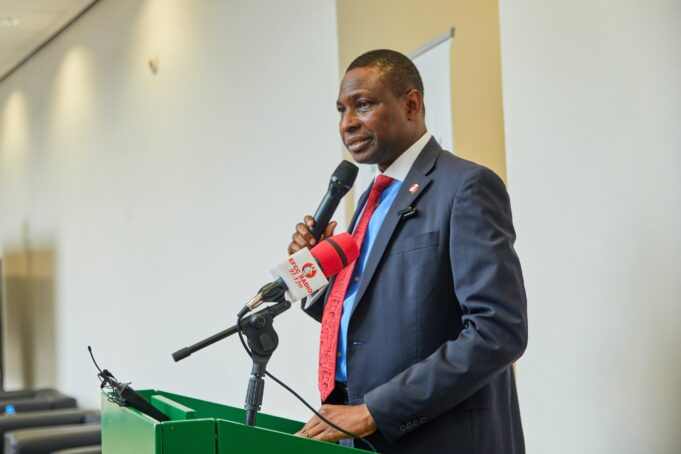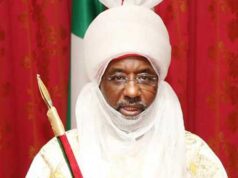The Economic and Financial Crimes Commission (EFCC) says organised foreign fraud syndicates are establishing cells in Nigerian cities and recruiting young Nigerians into serious organised cybercrimes, including cryptocurrency fraud.
The EFCC Chairman, Ola Olukoyede, disclosed this while receiving participants of the Executive Intelligence Management Course (EIMC) 18 of the National Institute for Security Studies (NISS) at the commission’s headquarters in Abuja on Wednesday, February 26, 2025.
Olukoyede expressed surprise on how bandits and insurgents are able to sustain their activities over the years, stressing that the flow of small arms and light weapons across Nigerian borders and the involvement of non-state actors in the illegal exploitation of minerals in parts of the country compound the threats in the security landscape.
“Another dimension that is not given attention is the discovery, recently, that organised foreign fraud syndicates are establishing cells in Nigerian cities and recruiting young Nigerians into serious organised cybercrimes, including cryptocurrency fraud,” the EFCC boss said.
He stated that by virtue of EFCC’s recent discovery, “we are beginning to see the likelihood, the propensity that a lot of these people are into illegal importation of arms into the country using cryptocurrency as means of payment.”
N1.38bn, $1m Fraud: EFCC arraigns Jude Okoye, ex-P-Square Manager
Olukoyede added: “And this is an area that must interest all of us.
“In the special operations we carried out in Lagos recently, we arrested 194 foreigners in the heart of Victoria Island. 194 of them, Chinese, Filipinos, Eastern Europeans, Tunisians, and the like in one building at a time.
“You can imagine what these guys are doing, 194 of them. Some of them don’t even have valid visas and most of the financial activities they carried out they did through cryptocurrency.
“Another thing that we discovered is that some of the foreigners we arrested were already ex-convicts in their countries. Some of them have been convicted and escaped from their countries and found safe haven in Africa, not only Nigeria.
“We discovered that they are also developing cells in some other African countries by virtue of the investigation we are carrying out.”
The EFCC boss called for spirited efforts at both national and continental levels to combat the menace of internet fraudsters, stressing that the money laundering and national security dimension of the presence of foreign organised crime groups demand close scrutiny.
- Fire guts hospital in Lagos - March 1, 2025
- ‘Don’t engage in hookup’: LASU warns new students against prostitution - March 1, 2025
- NECO to establish examination centres for police - March 1, 2025








